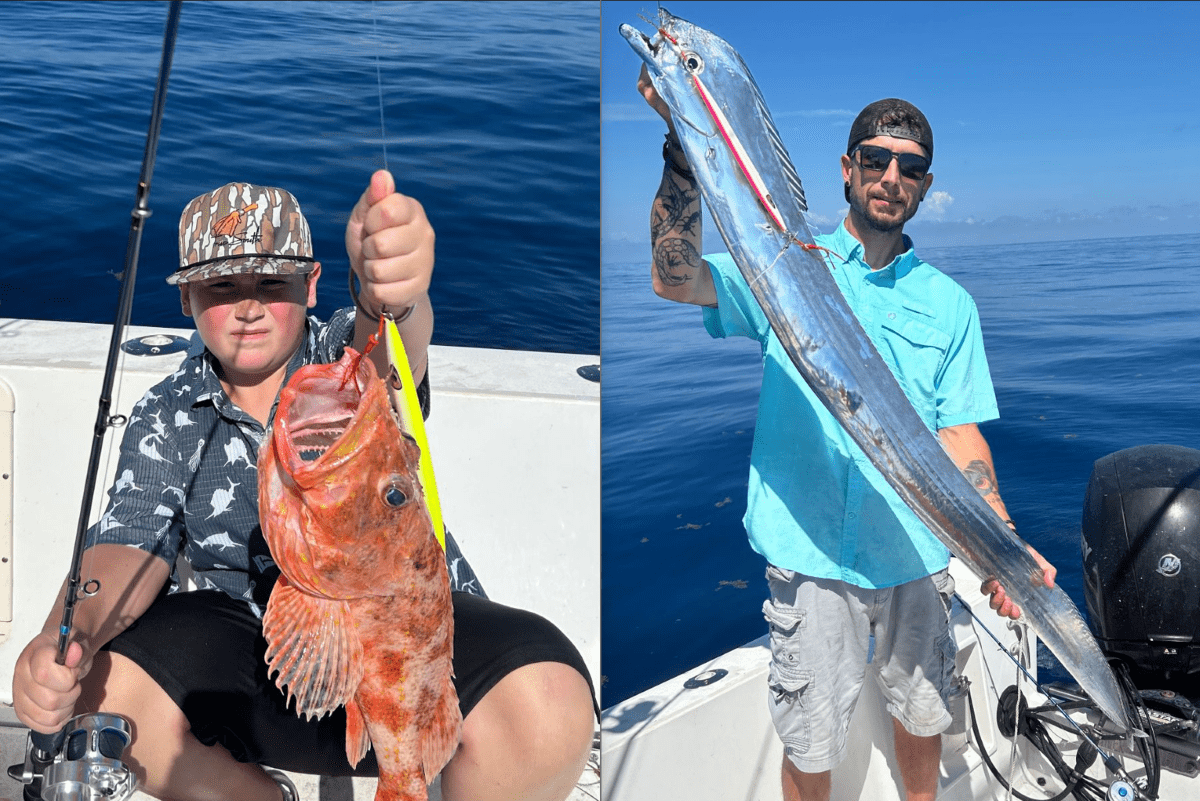
A father-son duo from Grimesland, while fishing recently off the coast of Ocracoke, established state records for two species: a channel scabbardfish (Evoxymetopon taeniatus) and a spinycheek scorpionfish (Neomerinthe hemingwayi).
There were no previous state records for either species, according to a Wednesday announcement from the Division of Marine Fisheries, which is under the N.C. Department of Environmental Quality.
Supporter Spotlight
Jody Hopkins landed what officials called a “rarely encountered and deep-dwelling” channel scabbardfish that weighed 7 pounds, 3.2 ounces. The fish measured 60 inches total length from the tip of the nose to the end of the tail and had a 10.25-inch girth.
Hopkins’ son, Oden, landed a spinycheek scorpionfish, weighing in at 4 pounds, 6.4 ounces. The fish measured 20.63 inches total length and had a girth of 13.63 inches.
The Hopkinses were jigging 33 miles off Ocracoke July 13 in nearly 700 feet of water, both using a torpedo jig, a Dragon Strike DSC-633 rod and a Gomexus SX450L reel with 30-pound line and a 50-pound leader. The two fish were weighed in at Neuse Sport Shop in Kinston.
This is Jody Hopkins’ second state-record fish for 2025. He established a state record for bulleye in June.
The International Game Fish Association, or IGFA, current world record for the channel scabbardfish is 9 pounds, 9 ounces. That fish was landed in the Bahamas in 2023. This is one of only a few dozen recorded observations of this species in the Western Atlantic.
Supporter Spotlight
The channel scabbardfish was taken to the Division of Marine Fisheries headquarters in Morehead City for identification. Biologists worked with the N.C. Museum of Natural Sciences in Raleigh to identify, photograph and collect genetic samples from the fish that will be donated to the museum’s permanent specimen collection.
The spinycheek scorpionfish unofficially tied the existing IGFA world record that was landed in Virginia in 2015. Fisheries officials advise anglers to handle any species of scorpionfish with care as the spines of the fish are venomous and dangerous.
For more information on state record fish, visit the state saltwater records webpage or contact the N.C. Saltwater Fishing Tournament staff at saltwater.citations@deq.nc.gov.







